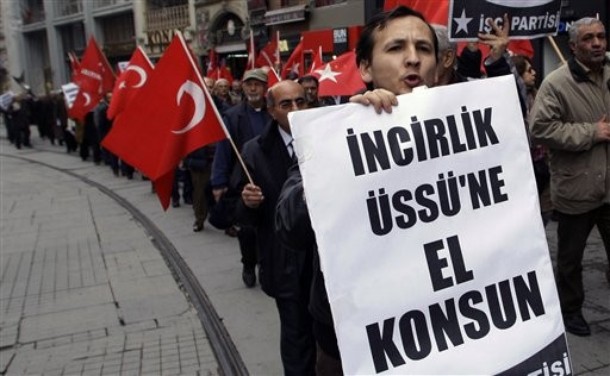
Once again, the United States Congress — famously unable to reach accord on even simple matters of domestic policy — has spent its precious time making a point of officially calling the Armenian genocide of 1915-17 genocide. Once again, this has angered the present government of Turkey, which has recalled its ambassador to Washington.
Delphine Strauss and Daniel Dombey report for FT:
Turkey on Friday warned of serious damage to its relations with the US and blamed Barack Obama’s administration for failing to stop a congressional panel approving a resolution that describes the Ottoman-era massacres of Armenians as genocide.
The committee vote is a severe test of bilateral ties when Washington is already struggling to persuade Ankara, a Nato member and key regional ally, to back sanctions against Iran.
The Turkish government, which denies the genocide, recalled its ambassador to Washington for consultations after the foreign affairs committee approved the resolution by 23 votes to 22, and complained that a last-minute plea by Hillary Clinton, secretary of state, to stop the measure was not forceful enough.
“We expect a more effective policy from the administration,” said Ahmet Davutoglu, foreign minister, adding that Washington had displayed “a lack of strategic vision”.
He also said the vote could harm Turkish and Armenian efforts at reconciliation,, which had already stalled, as Turkey “never took decisions under pressure”.
It’s difficult to gauge who’s being sillier here: The Turks for being unable to admit that which has been obvious to everyone else for decades or the U.S. Congress for banging this drum every year over an incident that transpired nearly a century ago and that has zero bearing on the United States except that bringing it up alienates an important ally. If forced to choose, I’d take the latter. While domestic politics plays an important role in explaining the idiocy in both Ankara and Washington, it’s decidedly more pressing there than here.
Steve Clemons, director of the American Strategy Program at New America Foundation, is exactly right when he calls the vote a "triumph of diaspora politics over serious foreign policy."
But, clearly, anyone in Ankara blaming Obama simply doesn’t understand American politics. In yet another way that American foreign policy has remained the same as it was under Bush, his administration has simultaneously been adamant that Congress should stay out of this and been powerless to do anything about it.
“We understand that there will be no decision in full Congress. We are against any new Congress decision,” Jim Jeffrey, US ambassador in Ankara, told reporters after being summoned to the foreign ministry on Friday.
“I do not think it is for any other country to determine how two countries resolve matters between them,” Mrs Clinton said on Thursday, adding that the administration did not believe the full House “will or should” vote on the resolution.
Ironically, as The Spectator‘s Alex Massie points out, Candidate Barack Obama promised to be different:
[T]he Armenian Genocide is not an allegation, a personal opinion, or a point of view, but rather a widely documented fact supported by an overwhelming body of historical evidence. The facts are undeniable. An official policy that calls on diplomats to distort the historical facts is an untenable policy. As a senator, I strongly support passage of the Armenian Genocide Resolution (H.Res.106 and S.Res.106), and as President I will recognize the Armenian Genocide.
While one would prefer politicians to keep their campaign promises, one has to make exception for damned fool promises. It’s doubtless a shame that, as Massie laments, "Just about the only time that wee country gets a mention in Washington is when the perennial Recognize-the-Genocide issue comes up." But it seems to me that it would be far more profitable for both the Armenians and Americans alike to focus our energies on solving problems of the current millennium.
James Joyner is managing editor of the Atlantic Council. Photo credit: AP.
Image: turkey-protest-armenia-resolution.jpg
